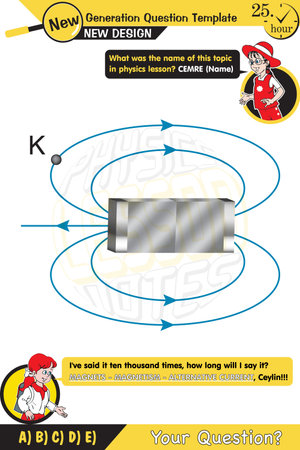1. Introduction to the UK Starter Car Market
The UK starter car market presents a diverse and dynamic landscape for new motorists. For first-time buyers, affordability and reliability are paramount, shaping purchasing decisions more than any other factors. With the rising costs of living and insurance premiums in Britain, selecting an economical vehicle is not just sensible—it’s essential. Whether you’re a recent licence holder or a parent helping your teenager get on the road, understanding what makes a great starter car is crucial. The ideal beginner’s car in the UK offers low running costs, manageable insurance groups, strong fuel efficiency, and a proven track record for dependability.
Why Affordability and Reliability Matter
Affordability ensures that young drivers or those with limited budgets can manage upfront costs as well as ongoing expenses such as tax, MOT, servicing, and repairs. Meanwhile, reliability reduces the likelihood of breakdowns—critical for building confidence behind the wheel and avoiding unexpected bills. These priorities are reflected in the most popular choices for new motorists across the country.
Key Considerations for UK Beginner Drivers
| Factor | Importance |
|---|---|
| Purchase Price | Low initial investment helps keep overall costs down |
| Insurance Group | Lower groups mean cheaper premiums for new drivers |
| Fuel Economy | Saves money at the pump, especially with rising petrol prices |
| Reliability Ratings | Minimises risk of breakdowns and repair costs |
The Current State of the UK Market
The market caters to a wide spectrum—from nearly-new superminis to older, proven models available on the second-hand market. Brands like Ford, Vauxhall, Toyota, and Hyundai have established reputations for producing cars that tick all the boxes for first-timers. This guide will help you navigate these options, ensuring your first motoring experience is both practical and enjoyable.
2. Key Criteria: What Makes a Great Starter Car in the UK?
Choosing your first car is a milestone, but with so many options on British roads, it’s crucial to understand what sets a top starter car apart. In the UK, several factors influence this choice more than elsewhere, thanks to unique driving conditions, insurance requirements, and cost considerations. Here, we break down the essential criteria every new driver should prioritise:
Cost: Upfront Price and Running Expenses
Affordability is often the first concern for beginner drivers. It’s not just about the sticker price—consider road tax (VED), MOT costs, and depreciation over time. Opting for a well-priced used model can offer excellent value without compromising reliability.
Insurance Group: Keeping Premiums Manageable
Insurance premiums in the UK are notoriously high for young or inexperienced drivers. Vehicles are categorised into insurance groups (1–50); lower group numbers usually mean cheaper cover. Picking a car from groups 1–10 is wise for most beginners.
Comparison of Popular Starter Cars by Insurance Group
| Model | Typical Insurance Group |
|---|---|
| Ford Fiesta 1.25 | 5–7 |
| Vauxhall Corsa 1.2 | 3–7 |
| Volkswagen Polo 1.0 | 1–4 |
| Toyota Aygo 1.0 | 3–5 |
| Hyundai i10 1.0 | 1–4 |
Fuel Efficiency: Saving at the Pumps
With fluctuating petrol and diesel prices across the UK, fuel economy matters more than ever. Look for cars with high MPG ratings and low CO2 emissions to reduce both running costs and annual road tax.
Top Picks by Official Combined MPG*
| Model | Official Combined MPG |
|---|---|
| Toyota Aygo 1.0 VVT-i | 56–68 mpg |
| Kia Picanto 1.0 | 50–64 mpg |
| Peugeot 208 1.2 PureTech | 55–62 mpg |
| Renault Clio 1.0 TCe | 54–64 mpg |
*Figures vary depending on model year and specification.
Maintenance & Reliability: Minimising Unexpected Costs
A good starter car should be easy to maintain and have an excellent reputation for reliability. Parts availability and reasonable service intervals matter; consult owner reviews and reliability indexes before committing.
Everyday Practicality: Tailored to UK Roads & Lifestyles
The best beginner cars must suit Britain’s narrow lanes, tight city streets, and variable weather conditions. Compact dimensions make parking easier, while features like heated windscreens or decent boot space add significant day-to-day convenience.
The Takeaway for New Drivers in the UK:
Selecting your first car isn’t just about what you fancy—it’s about balancing cost, insurance, efficiency, maintenance, and real-world usability on British roads. By focusing on these key criteria, you’ll lay the groundwork for safe, affordable, and enjoyable motoring from day one.

3. Top Affordable Picks for First-Time Drivers
When it comes to selecting an ideal starter car in the UK, first-time drivers often seek a balance between affordability, reliability, and low running costs. British consumer preferences also lean towards vehicles with modest insurance groups, excellent fuel economy, and strong reputations for durability. Below is a curated list of popular options that tick all these boxes, making them highly recommended choices for newcomers navigating the UK roads.
Best Value Starter Cars: Key Contenders
| Model | Approximate Price Range (Used) | Insurance Group | Fuel Economy (mpg) | Notable Features |
|---|---|---|---|---|
| Ford Fiesta | £3,000–£8,000 | 2–7 | 45–65 | UK favourite, great handling, widely available parts |
| Vauxhall Corsa | £2,500–£7,500 | 3–7 | 42–55 | Low insurance, cheap maintenance, popular with learners |
| Volkswagen Polo | £4,000–£9,000 | 1–9 | 47–67 | Solid build quality, good resale value, refined drive |
| Toyota Yaris | £4,000–£10,000 | 5–8 | 48–70 | Exceptional reliability, economical hybrid options |
| Hyundai i10 | £3,500–£8,000 | 1–4 | 50–68 | Straightforward controls, low tax bands, 5-year warranty (newer models) |
A Closer Look at UK Preferences
The Ford Fiesta and Vauxhall Corsa dominate the British market due to their ubiquity and excellent aftersales support. Both are easy to drive and park—ideal for urban centres like Manchester or Birmingham. The Volkswagen Polo appeals to those who prefer a more premium feel without breaking the bank. Toyota’s Yaris stands out for its legendary dependability and availability of hybrid variants—an attractive prospect as Ultra Low Emission Zones expand across cities like London. Meanwhile, the Hyundai i10’s compact size and modern safety features make it a practical choice for city dwellers and rural drivers alike.
Selecting Wisely for Long-Term Savings
Apart from initial purchase price and fuel efficiency, insurance groupings are crucial for beginners in the UK; lower groups generally mean cheaper premiums. Consideration of ongoing maintenance costs and parts availability will also help new drivers avoid unexpected bills. Choosing from these proven models ensures not only peace of mind but also a smart financial start on your motoring journey.
4. Cost of Ownership: Beyond the Sticker Price
When considering affordable and reliable starter cars in the UK, it’s vital to look beyond just the initial purchase price. The true cost of ownership encompasses several ongoing expenses that can significantly impact your budget over time. Here’s a breakdown of the key factors you’ll need to account for:
Breakdown of Ongoing Costs
| Cost Category | Description | UK-Specific Considerations |
|---|---|---|
| Vehicle Excise Duty (VED) | An annual tax based on CO2 emissions and vehicle age. | Low-emission vehicles attract lower VED; rates change yearly, so check the latest government tables. |
| Insurance | Legally required; premiums vary by driver profile, location, and car model. | Beginner drivers typically pay higher premiums; selecting a car in a lower insurance group can help reduce costs. |
| Fuel | The ongoing cost of petrol or diesel, dependent on mileage and efficiency. | Opt for cars with high MPG ratings to save; consider petrol over diesel for city driving due to ULEZ and Clean Air Zones. |
| Maintenance & Servicing | Routine servicing, MOTs, tyre replacements, and unexpected repairs. | Japanese and European models often offer better reliability and lower maintenance bills; factor in MOT requirements after three years. |
| Depreciation | The decline in value over time. | Starter cars tend to depreciate slower than premium models; popular makes hold value better in the UK market. |
VED: Understanding the UK Vehicle Tax System
The amount you’ll pay in VED is determined by your car’s CO2 emissions and registration date. For example, a new car emitting under 100g/km may be exempt from VED for the first year, while older models with higher emissions face steeper charges. Always verify current rates on the official GOV.UK website.
Insurance Groups: The Key to Lower Premiums
The UK uses insurance groups (1–50) to classify cars; group 1 represents the lowest risk and cost. As a beginner, choosing a vehicle in groups 1–5—such as the Ford Fiesta or Vauxhall Corsa—can yield significant savings. Telematics (“black box”) policies are also worth considering for young drivers seeking further reductions.
Fuel Economy: Petrol vs Diesel vs Hybrid Options
Pertinent to UK drivers are not only fuel prices but also environmental zones like London’s ULEZ. While diesels offer superior motorway economy, small petrol engines or hybrids are more practical for urban use. Always compare real-world MPG figures before making your decision.
Sample Running Cost Comparison (Per Annum)
| Ford Fiesta 1.0L Petrol | Toyota Aygo 1.0L Petrol | Nissan Micra 1.2L Petrol | |
|---|---|---|---|
| VED | £180 | £0–£20* | £155* |
| Insurance (Young Driver) | £1,000–£1,300 | £900–£1,200 | £950–£1,250 |
| Fuel (8,000 miles @ 50mpg) | £960* | £900* | £990* |
| MOT/Servicing/Repairs** | £250–£400 | £200–£350 | £220–£380 |
| *Estimates based on typical usage and may vary by region/model year. **Assumes routine servicing and minor repairs only. |
|||
The Bottom Line: Total Cost Perspective Matters Most
An “affordable” starter car is only truly budget-friendly if you fully account for all associated running costs. By considering VED bands, insurance groupings, fuel economy, and realistic maintenance outlays—specific to the UK environment—you’ll avoid unwelcome surprises and make an informed decision perfectly suited for your needs as a new driver.
5. Where to Buy and What to Watch Out For
Dealerships vs. Private Sellers: Pros and Cons
When searching for an affordable and reliable starter car in the UK, buyers are often faced with the choice between purchasing from a dealership or a private seller. Each route comes with its own set of advantages and drawbacks, which are crucial to consider for first-time buyers.
| Aspect | Dealerships | Private Sellers |
|---|---|---|
| Legal Protection | Consumer rights under the Consumer Rights Act 2015; warranty often included. | Sold as seen; limited legal recourse if issues arise post-purchase. |
| Vehicle History | Typically provide full service history and HPI check. | May lack documentation; buyer must verify details independently. |
| Price | Slightly higher due to overheads and added security. | Potentially lower, but higher risk of hidden faults. |
| After-Sales Support | Access to aftercare, servicing, and MOT packages. | No after-sales support; all responsibility falls on buyer. |
The Best Platforms for UK Buyers
The online marketplace has revolutionised car buying in Britain. Here are some trusted platforms widely used across the UK:
- Auto Trader: The go-to platform for both dealers and private sellers, offering advanced filters and comprehensive listings.
- PistonHeads: Renowned for enthusiast cars but includes a wide selection of beginner-friendly models.
- Cargurus: Utilises price analysis tools to highlight good value options.
- Facebook Marketplace & Gumtree: Useful for local deals, but proceed with extra caution regarding legitimacy.
- Main Dealer Approved Used Sites: Ideal for those prioritising manufacturer warranties and full checks.
Pitfalls to Avoid When Purchasing a Beginner’s Car
- Mileage Tampering: Always check MOT history online via the GOV.UK site to validate mileage claims.
- Lack of Service Records: A full or partial service history is critical for reliability; avoid vehicles without any documentation.
- Outstanding Finance: Use an HPI check to ensure there are no debts attached to the vehicle that could result in repossession.
- Bodged Repairs & Write-Offs: Look for signs of poor repair work or cars previously written off—these can be problematic in the long run.
- No Test Drive Offered: Always insist on a test drive; reluctance from the seller may indicate underlying problems.
Your Next Steps as a First-Time Buyer
Navigating the UK’s used car market requires due diligence, patience, and a clear understanding of your needs. Whether opting for a reputable dealer or taking a chance with a private seller, always prioritise transparency, verify all documentation, and never feel pressured into making an immediate decision. Remember, the right starter car is out there—and with careful research and attention to detail, you’ll be driving away with both confidence and peace of mind.
6. Conclusion and Expert Recommendations
As we draw this comprehensive guide to a close, it’s clear that affordability and reliability are paramount for first-time car buyers in the UK. Navigating the British automotive market can be daunting, but with careful consideration of running costs, insurance groupings, and proven performance records, new drivers can make savvy decisions without compromising on safety or driving experience.
Final Thoughts: Key Takeaways for UK Starters
| Key Consideration | Expert Advice |
|---|---|
| Total Cost of Ownership | Factor in insurance (look for Group 1-5), annual road tax (VED), fuel efficiency (mpg), and maintenance history. |
| Reliability Ratings | Opt for models with strong records in the UK—Japanese brands like Toyota and Honda consistently score well. |
| Resale Value | Popular models such as Ford Fiesta and VW Polo tend to retain value better over time in the local market. |
| Local Support & Parts Availability | Choose cars with widespread dealer networks and easy access to affordable parts. |
Top Picks: Our Recommended Starter Cars for the UK Market
| Model | Performance Highlights | Typical Price Range (£) | Insurance Group |
|---|---|---|---|
| Ford Fiesta (2017+) | Nimble handling, economical engines, widely available spares | £6,000–£12,000 | 2–7 |
| Toyota Yaris (2015+) | Excellent reliability, hybrid options, low running costs | £7,000–£13,000 | 3–8 |
| Volkswagen Polo (2016+) | Sophisticated interior, solid build quality, efficient petrol engines | £8,000–£14,000 | 1–8 |
| Kia Picanto (2017+) | Low insurance groups, 7-year warranty from new, compact size ideal for city driving | £6,500–£10,500 | 1–6 |
| Hyundai i10 (2017+) | User-friendly technology, reliable mechanics, good aftersales support in the UK | £6,000–£11,000 | 1–5 |
Your Next Steps as a First-Time Buyer:
- Pace yourself: Avoid impulse purchases; always view multiple vehicles and request a full service history.
- PPI is crucial: Consider a pre-purchase inspection by an independent mechanic for peace of mind.
- Dive into local forums: UK-based owner communities can offer invaluable insight into common issues and bargains.
- Tally up all costs: Remember to budget for insurance deposits, initial servicing, and potential minor repairs.
A well-informed decision today sets you up for years of stress-free motoring. By blending performance analysis with local market expertise—as detailed above—you’re now equipped to find a starter car that’s not only affordable and reliable but perfectly tailored to life on Britain’s roads. Happy motoring!

